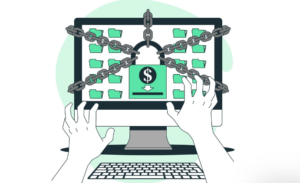Apple, a leading tech company that has always been in the headlines with its new iPhone launches and innovations, found itself in a different kind of spotlight on November 17. The tech giant faced a class-action lawsuit in a California District Court, accused of restricting payment options and hindering the incorporation of crypto technology into iOS payments apps. If you’re curious to learn more about the details of this lawsuit against Apple, then keep reading!
Allegations on Apple for Anti-Competitive Agreements:
The lawsuit contends that Apple has entered into anti-competitive agreements with PayPal’s Venmo and Block’s Cash App. These alleged agreements aim to limit the utilization of decentralized cryptocurrency technology in payment apps, which results in users ending up paying higher prices. “According to the plaintiffs, these agreements limit new features in apps and hinder market-wide price competition by preventing the incorporation of decentralized crypto tech in iOS peer-to-peer payment apps.
Technological and Contractual Restraints:
The complainants further claim that Apple employs various “technological and contractual restraints” to exert control over the iOS ecosystem. Besides this, it includes enforcing App Store exclusivity through hardware and imposing “contractual limitations on web browser technology.” The result, as per the lawsuit, is Apple’s unfettered control over every app installed and run on iPhones and iPads.
Impact on Crypto Integration:
The lawsuit asserts that Apple utilizes these restraints to coerce new iOS peer-to-peer payment apps into excluding crypto integration as a condition for entry into the Apple ecosystem. This, according to the plaintiffs, limits innovation and consumer choice within the payment app landscape.
Consumer Impact and Legal Action
Consumers, identifying themselves as those who have paid inflated fees due to Apple’s alleged anti-competitive practices, seek redress. The class action lawsuit aims to recover excessive fees and overcharging resulting from Apple’s conduct. Moreover, the plaintiffs seek injunctive relief, demanding that Apple cease entering into and enforcing anti-competitive agreements that restrict competitors and potential entrants in the iOS peer-to-peer payment market.
Legal Context:
The lawsuit delves into the historical context of peer-to-peer payment apps, decentralized cryptocurrencies, and Apple’s foray into this market. Notably, in April, the Court of Appeals for the Ninth Circuit ruled against Apple, determining that the tech giant violated California’s competition laws by restricting apps from directing users to non-Apple linked payment solutions.
The Ongoing Legal Battle
This lawsuit against Apple marks a big thing in the world of tech and digital payments. It can change the whole market dynamics of this industry. Moreover, the allegations of anti-competitive agreements and restrictions on crypto integration not only shed a spotlight on Apple’s practices but also raise a broader question about the balance between corporate control and fostering innovation
Implications for Consumer Choice
As the legal battle progresses, the outcome could significantly impact the choices available to consumers in the rapidly evolving realm of peer-to-peer payments. Similarly, the allegations of stifled competition and restricted innovation make us wonder how much big tech companies should decide in the digital payment world and if they should support different ideas.
Future Trends in Tech and Finance
Beyond the courtroom, this legal lawsuit prompts contemplation on the future trends in technology and finance. The intersection of peer-to-peer payments, cryptocurrencies, and antitrust considerations sets the stage for a nuanced exploration of how legal decisions can shape the trajectory of innovation in the tech-driven financial landscape.
In a Nutshell:
As this class action lawsuit proceeds further, it poses potential implications for Apple’s dominance in the iOS peer-to-peer payments realm. Moreover, the allegations of anti-competitive agreements and restrictions on crypto integration bring to light the intricate balance between tech giants’ control and the fostering of innovation within digital payment ecosystems. Therefore, the outcome of this legal battle could influence the trajectory of competition and consumer choice within the rapidly evolving landscape of peer-to-peer payments. Stay tuned for updates on this significant legal development!










